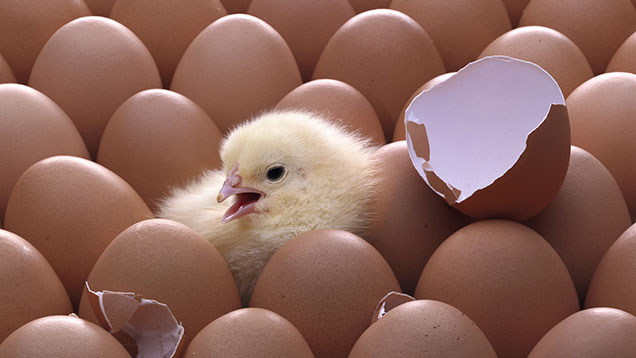Bird flu costs mount up as markets close
 © imageBROKER/REX
© imageBROKER/REX Lost export markets are costing the UK poultry sector dear following the outbreak of highly pathogenic avian influenza on an egg farm in Lancashire earlier this month.
The outbreak of H7N7 on the farm near Preston led to the death of 36,000 birds and the slaughter of 144,000 more, and prompted a number of countries to close their doors again to British poultry and eggs.
According to Defra, Australia, Japan, Kenya, Singapore, South Africa and St Vincent are currently imposing country bans on UK poultry, while the United Arab Emirates is banning poultry from England only.
Hong Kong, Turkey and Russia are taking a regional approach, banning product from Lancashire.
See also: High-pathogenic bird flu hits Germany – again
“We are working closely with veterinary authorities across the world to limit the trade impact and reopen export routes as soon as possible,” said a Defra spokesman.
One company affected is layer genetics company Hy-Line – even though it has no production in the affected area of Lancashire.
“We believe the most recent HPAI outbreak in the UK will result in a minimum of six months of import restrictions to third countries that require country freedom from HPAI,” said company president, Jonathan Cade.
“This will result in more than £1.5m of lost business to Asia, Africa and India from our UK operation over the next six months. This is in addition to many more millions already lost as a result of the last outbreak.”
Mr Cade said it was essential that premises affected by HPAI were cleaned and disinfected quickly, to OIE requirements, so that “country freedom” could be reinstated as soon as possible.
“You can be assured that Hy-Line’s long-term viability to supply layer breeding stock from our operation in the UK is certain,” he added.
Hatchery business Joice and Hill near Peterborough, Cambridgeshire, also complained that it had lost business, including the sale of 300,000 hatching eggs to a customer in the Middle East, which was cancelled this week.
With Germany also reporting a case of HPAI this week, managing director Nick Bailey predicted disruption to the whole EU hatching egg trade.
Cleaning costs
It is understood that secondary cleansing and disinfection has yet to begin at the Lancashire site. When it does, it is likely to cost the Staveley’s Eggs business many thousands of pounds.
In the last case of low-pathogenic avian influenza in Hampshire in February, it took around six weeks to complete, costing the McKenzie Brothers broiler breeding business “a six-figure sum”.
Andrew McKenzie said the job had been handed over to contractors, partly for biosecurity reasons, but also because of the time required in dealing with the associated red tape.
The cost was astronomical, he said, describing getting avian influenza as “a lottery, without a prize”.
He also regretted the trade impact. “It is ridiculous that a company like Aviagen should be blocked from exporting chicks and eggs from Scotland due to an isolated incident in a broiler shed in Hampshire, when the north coast of France is considerably closer.”
